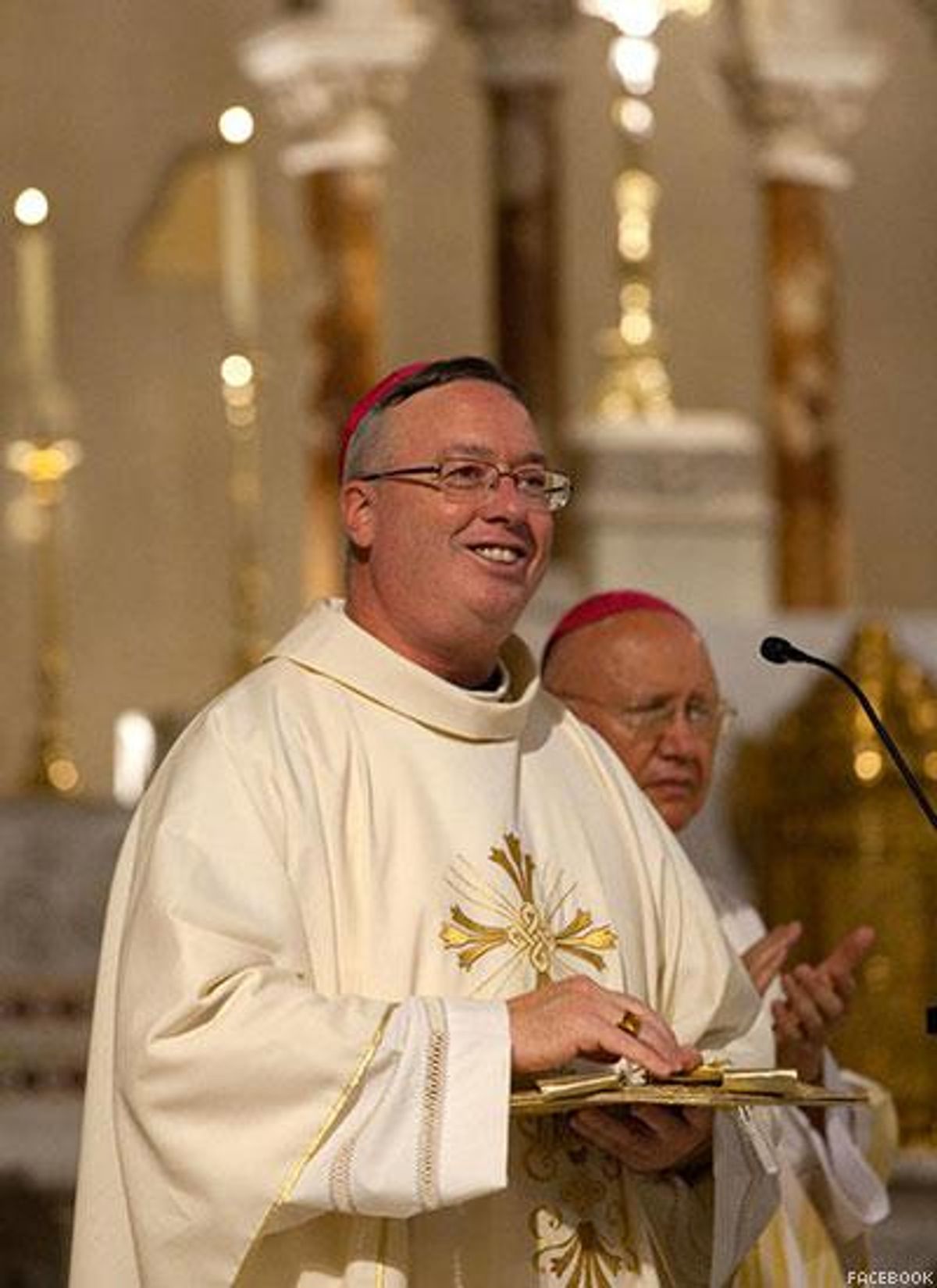Vermont -- a state that adopted marriage equality early in the game and was the onetime home of "Hubby Hubby" ice cream -- has a new Roman Catholic bishop, and he has some affirming words for transgender people. However, he sees same-sex relationships as not "matching up" to what the Catholic Church calls on its members to "strive for" when it comes to sexuality and relationships.
Bishop Christopher Coyne of the Burlington diocese, which covers the entire state, said during a recent Vermont Public Radio interview that he not only would welcome transgender people in church but that he acknowledges the evidence that trans people do not choose to be trans.
"There's more and more evidence coming forward that a lot of this is biological ... that transgender people are really struggling with the idea of gender identity ... and that's through no fault of their own. And so there's no fault to be made, actually. This is who they are. ... Everyone is God's creatures. And I would invite anyone to come to the table," said Coyne, who even said he wants people to call him out if he inadvertently uses the wrong pronoun for a trans person or says something harmful.
Coyne also said he would welcome lesbian, gay and bisexual people -- but with a clear caveat that he still views same-sex relationships as an aspect of life that would "need a little change" for a Catholic. He called a relationship with Jesus a starting point for working toward the "paradigm" of opposite-sex marriage that is open to children, which he called the perfection of human sexuality.
"Most of us struggle getting there," said Coyne, who said being in a same-sex relationship doesn't match up with what the church expects of members.
Francis DeBernardo, executive director of LGBT Catholic organization New Ways Ministry, lauded Coyne's remarks as a "giant step" with regard to welcoming transgender people, while saying his "message about lesbian and gay people" is "more ambiguous."
Here is an excerpt from DeBernardo's blog post responding to Coyne's interview:
[Coyne's] recommendations may be the most complete illustration of the undefined pastoral approach to gay and lesbian people that Pope Francis has been hinting it. What is good about it is that it reduces the stigma associated with lesbian and gay people. No longer are they to be summarily ostracized from the church community. It does not put adherence to church teaching as a litmus test for being part of the parish community.
The negative side of this approach, however, is that it still considers gay and lesbian relationships "less than." Moreover, the welcome this approach offers, while not conditional from the outset, still has the expectation that once welcomed, gay and lesbian people will work towards renouncing responsible sexual expressions of their love and commitment. Although this expectation is not stated outright, it seems to be the logical extension of such an approach. There is no recognition of the authority of conscience that may be directing a gay and lesbian couple to live together and to seek a life of faith in community.
Pope Francis has been vague about his outline for pastoral care for lesbian and gay people. Bishop Coyne's statements, though, echo much that was said at the 2014 synod in regards to LGBT pastoral care. While it may be a step forward, it also highlights how far we yet to have to go as a church.
Within the Catholic Church, transgender issues are so sensitive that one nun has for years run a secret ministry for trans people under the moniker Sister Monica. Last month Pope Francis held a private meeting with Diego Neria Lejarraga, a transgender man, and his fiancee. That meeting followed Lejarraga writing the pope a letter about being rejected by his parish in Spain and being called "the devil's daughter" by a priest.
"For the pope to meet with a transgender man about to be married, and for that meeting to result in this man feeling more hopeful about his place in the church, shows a concern for those at the very margins of our church. I hope the pope listened carefully to this man's experience and will speak about what he heard," Marianne Duddy-Burke, who heads the LGBT Catholic organization Dignity USA, told the Washington Blade in January.
As for the pontiff, he has a mixed record when it comes to LGBT people. Many have hailed him for shifting the Catholic Church's tone when it comes to LGBT issues. At the same time, he's garnered criticism for a lack of policy changes -- although some observers point out that a major policy overhaul is not likely. He also has made some public comments criticizing same-sex marriage and nontraditional families, and the Vatican has held a "traditional marriage" summit under his leadership.


















































































Viral post saying Republicans 'have two daddies now' has MAGA hot and bothered